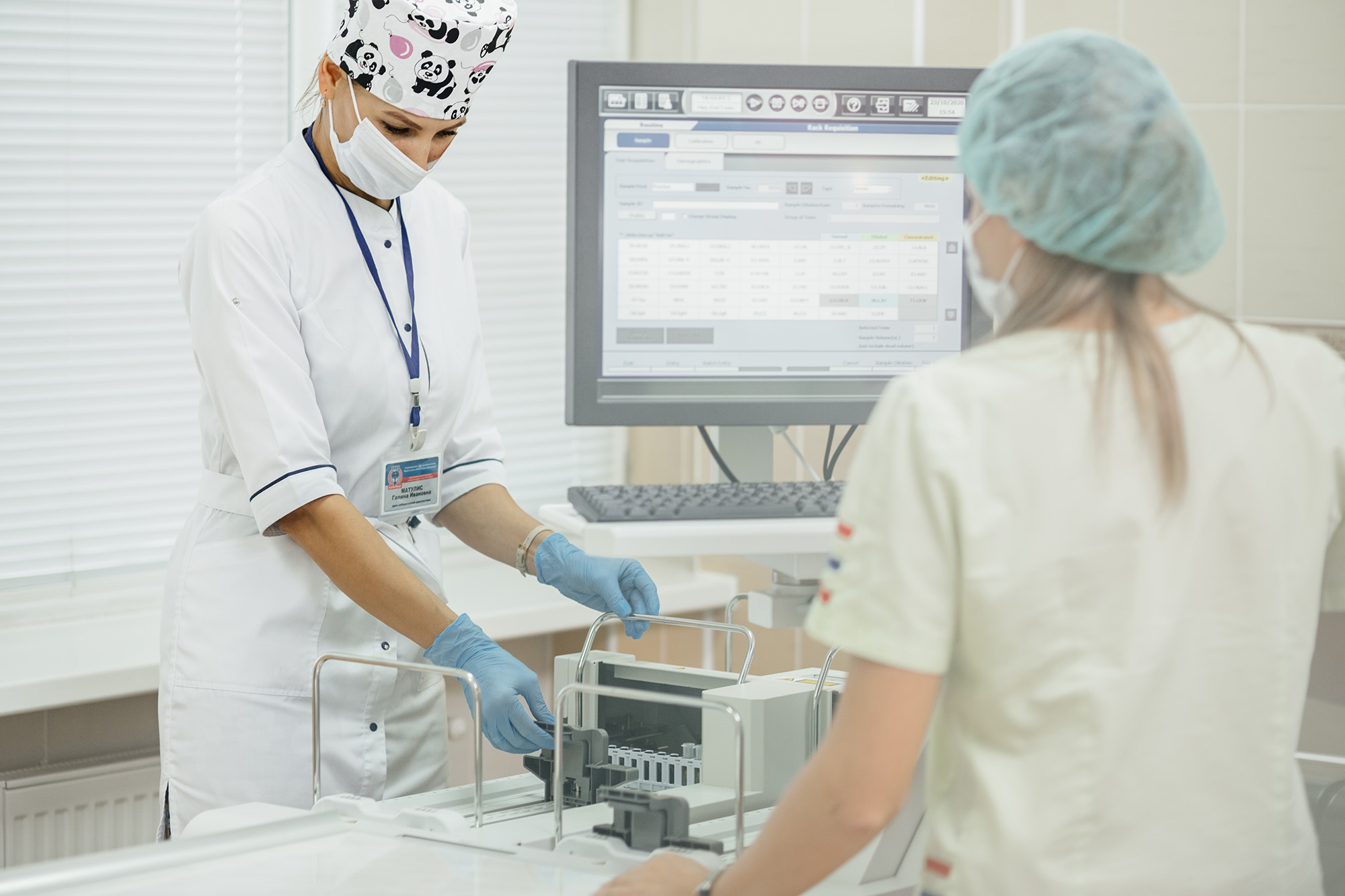
The cross-border projects are not just indicators, budgets, reports and payments. Although these are their inseparable elements, above all each project hides the specific ideas, values and dreams of people implementing it, as well as the stories of those who benefited from its implementation.
We want to bring some of them closer to you by the "Project stories" - the cycle which will present this more human (but also animal - as in the 1st episode) dimension of our selected projects. We invite you to read.
![]()
What are the associations that an ordinary person has with the word "hospital"?
The first thought is the place where it is better not to get into. And what think about it people for whom it is a daily work, people for whom the hospital itself is a huge part of life? The medics consider the fight for patients' health and life the main goal of their work. This is what their efforts are concentrated on. These are the two main and obvious sides of the health care system – patients and medics.
But the proper functioning of every health care institution, and primarily the hospital, requires also a lot of work of many other people, providing maybe not that visible but essential keeping over functioning of this complex system of saving lives. The heroine of our story is such a person – Kristina Vyacheslavovna Semenova.
For a long time, being the deputy chief of the hospital responsible for the technical issues and construction, her main concern was to create appropriate conditions for patients and doctors. The greatest challenge in achieving that were always limited financial sources. Looking for various solutions, Kristina came across the EU funded cross-border programmes and realized that despite all the possible difficulties, she must try that opportunity for the hospital development. She was the one who initiated a full-fledged partnership between healthcare institutions from Brest and Biała Podlaska (Poland) and their applying with a joint project in the Poland-Belarus-Ukraine CBC Programme 2007-2013. The project appeared to be successful and received a grant from the Programme.
The activities within the first project were related to cardiology, an area where statistics on cardiovascular diseases dictate the need for improvement. At that time, Kristina accompanied all stages of the project implementation up to the approval of its final report. From the very beginning, one of her greatest efforts was ensuring good communication between project partners, what was supported by her knowledge of the Polish language. Indeed, the project succeeded and creation of the strong partnership was the foundation of cooperation under subsequent Programme edition for 2014-2020.
This is how the EpidSafe project was born, the idea of which is to reduce the risk of mass outbreaks of infectious diseases, primarily such as Hepatitis C virus or HIV/AIDS. Within the project, the Regional Specialist Hospital in Biała Podlaska supplies medical and laboratory equipment and develops a special system for sending biological material, medicines and documents by means of compressed air. The equipping of a modern diagnostic laboratory in the Department of Infectious Diseases (Brest Regional Clinical Hospital), which was one of the activities planned in the project, proved to be extremely on time in 2020. Doctors have always been recognizing the importance of epidemiological safety and working with infectious diseases, but no one could have thought that epidemiology would become so relevant. EpidSafe project came in handy – the new diagnostic equipment strongly strengthened the capacity of the hospital during the coronavirus pandemic. Except for current testing on Covid-19, this laboratory is normally involved in screening the population for hepatitis C.
Can you imagine what screening is? People come in, not even thinking and suspecting any diseases. In 70 of 1000 screened patients, the test detects changes in the liver and then we send them for further detailed diagnosis and assistance. And here, of course, a great role is played by infrastructure - when we have a modern diagnostic laboratory there are tests, free screening for the population, elastography.
– explains Kristina Vyacheslavovna.
The liver does not hurt and there are no symptoms of disease. That's why we used to say: hidden infections but nevertheless dangerous.
– confirms Andrey Shestyuk, Head of the Surgery and Transplantation Department of the Brest Hospital
Moreover, as part of the project, trainings on highly dangerous infectious diseases as well as workshops for general practitioners and nurses are being provided to staff of medical institutions from both countries.
Joint projects have started a great friendship because it is not even so much a partnership as a really strong friendship. The most valuable thing from our projects is that we are really friends and can call each other to consult and resolve some difficult situation behind which a person's life stands. This is priceless.
– summarizes Kristina Vyacheslavovna and nothing more has to be added.
The project “Improvement of epidemiological safety at the Polish-Belarusian border area” is being implemented thanks to the financial support of the European Union within the Cross-border Cooperation Programme Poland-Belarus-Ukraine 2014-2020.
More information on the EpidSafe project can be found here.
Was this page useful?


